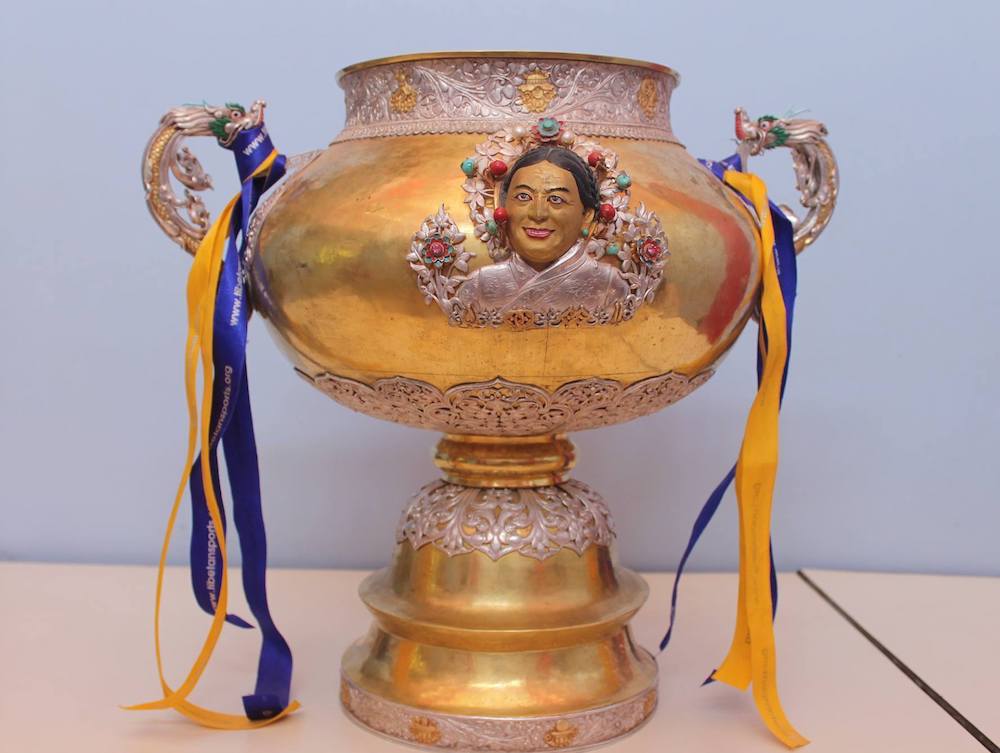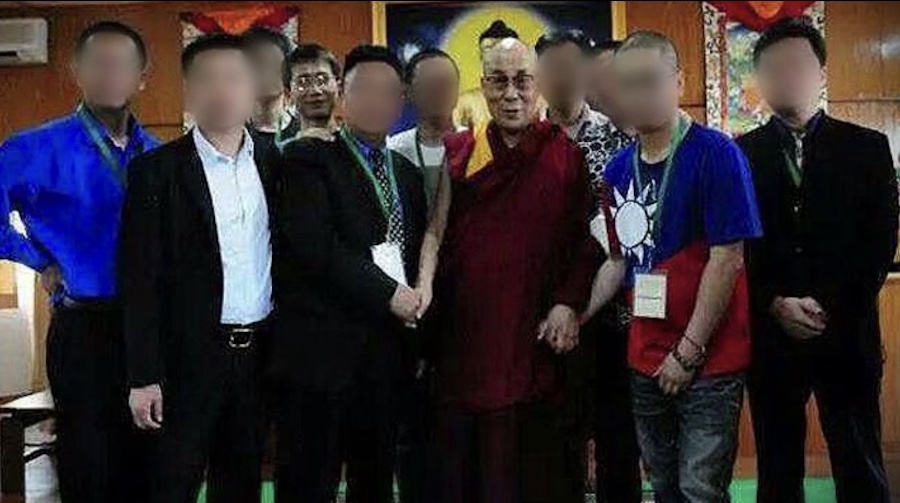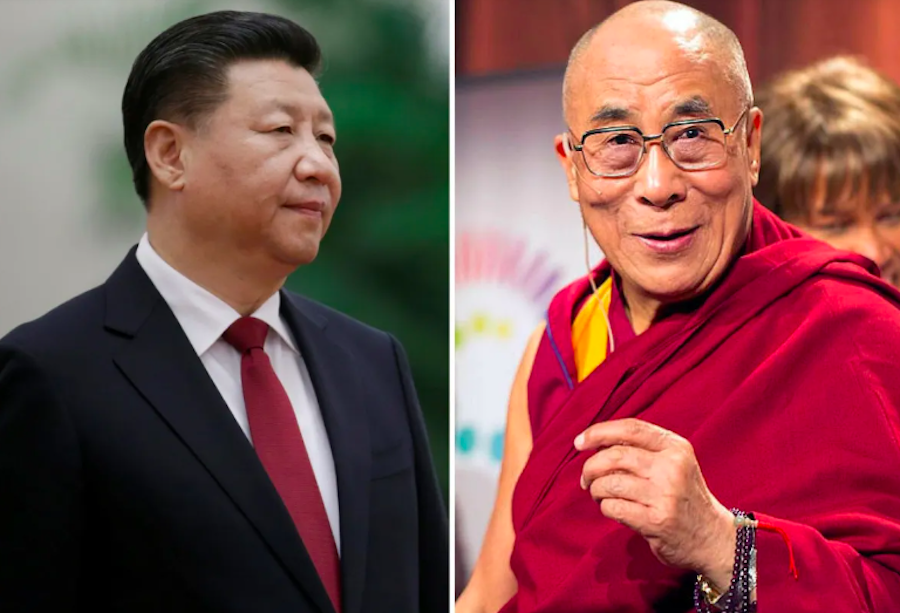By Kate Saunders
One hundred tour guides from different Chinese provinces have been assigned to Tibet each year for the next decade, representing a further threat to the livelihoods of Tibetan guides, who have been under increasing political pressure for several years. More than 150 Tibetan tour guides have lost their jobs in recent months following checks on their background and suspicion regarding their political affiliation. These dismissals follow a pattern of increasing control of Tibetan professionals who have visited India, where the Dalai Lama lives, and are therefore suspected of “separatist” activity.
The posting of the new tour guides from China to Tibet is a high-level initiative China¹s most senior leader, Party Secretary and President Hu Jintao, former Party Secretary of the Tibet Autonomous Region, has “given important instructions on developing the contingent of tourism workers in Tibet on two occasions” according to the same Xinhua report (8 April), and he is said to pay “great attention” to tourism in Tibet. According to the regional tourism bureau, Tibet received 850,000 visitors in 2002, up nearly 25 per cent from the previous year (Xinhua, 7 April). The increase was largely due to a significant rise in the number of Chinese tourists, who numbered 720,000 in 2002, up 29 percent from 2001. 130,000 overseas tourists visited Tibet in 2002.
The first group of tour guides, who have just arrived in Tibet, are from 85 travel agencies and departments in 23 Chinese provinces, regions and municipalities. According to an article in the People¹s Daily yesterday (16 April), they are due to stay for six months. Their transfer to Tibet is partly a reflection of the increasing numbers of Chinese tourists visiting Tibet, but it also indicates the authorities¹ desire to control representations of Tibet made to tourists including Western travellers. Tibetan tour guides who were educated in English in Tibetan exile communities in India a common practice among Tibetans who want to work in tourism – have faced increasing difficulties in keeping their jobs in recent years due to the authorities¹ concerns regarding their possible “splittist” tendencies. In July and August last year, the Tibet Tourism Board was instructed to do a thorough check on all tour guides in the Lhasa area part of the check required each Tibetan tour guide to produce a letter from their respective home area which guaranteed that they had never been to India. A local official¹s stamp over the statement reading: “[name] has never gone to India or abroad illegally” was required. As a result of this process, more than 160 Tibetan tour guides were dismissed by January this year. At the same time, more Chinese guides have been arriving from Sichuan and other Chinese provinces to seek work in the tourism business in Lhasa.
The official justification for the increasing numbers of Chinese tour guides employed in Tibet is that the guides from China “speak a foreign language and Tibet has a shortage of tour guides who speak a foreign language.” The recent batch of tour guides include nine who speak Japanese and 18 who speak German, French, Italian, Korean, Russian and Cantonese, according to the People¹s Daily, although the majority of them will be using English and Chinese. Even so, both Western tour groups and many Chinese tourists prefer Tibetan guides to lead their tours in Tibet. A Tibetan exile who has worked in the travel business in Lhasa said: “Many Chinese say that if they want a Chinese guide, they could just bring one from Beijing or their home area. The handful of Tibetans who do work as guides for the Chinese groups have almost all studied in China and can speak Chinese well.” A former Tibetan tour guide said: “The Tibet Tourism Bureau (TTB) prefers Chinese groups to have Chinese guides the agency is very much influenced and overseen by the Public Security Bureau and other government agencies. The TTB used to say very directly to us that the point of tourism in Tibet is primarily political and that economic gain is second. This is evident, for example, with guides because one could have the best language skills and be very amicable and responsible but, if their politics isn’t in line with the Party, there is no way they will be allowed to guide.”
Wu Yi, a member of the Political Bureau of the Chinese Communist Party Central Committee and vice-premier of the State Council, urged the new Chinese guides in Tibet not only to “publicize the beautiful mountains and rivers of the motherland” but also to “enable domestic and foreign tourists to gain a more comprehensive and objective understanding of Tibet’s yesterday, today and tomorrow, and resolutely struggle against all words and deeds that distort facts with an attempt to split up the motherland.” (Xinhua, 8 April).
Some educated and well-informed Tibetan tour guides have become drivers or sought other employment in recent years due to the political suspicion and levels of surveillance they face when working in the role of tour guide. In one incident last year, several Tibetan tour guides lost their jobs and were investigated for making comments that were deemed politically unacceptable to tourists, following a complaint made by a member of the group, an overseas Chinese. The lack of clarity over what is or is not politically acceptable during casual conversation contributes to the insecure conditions of employment for Tibetans working in the tourist industry today. Tibetans who have been to India and who work for cafes, in hotels, or for international non-governmental organisations, are also under suspicion.
Despite the difficulties for Tibetan tour guides educated in India, the authorities in Tibet have stopped short of imposing further obstacles to Tibetan tour guides in terms of the use of Tibetan language as a medium for instruction and for the exams that all guides are required to pass. Last year, although an initial announcement was made that the examination for tour guides in Tibet was going to be only in Chinese, the authorities later ensured it was in both Tibetan and Chinese, with some English used too. There was also less of an emphasis on issues which many tour guides found difficult, such as questions about the Dalai Lama and the 17-Point Agreement.
A copy of the 2001 examination paper obtained by the International Campaign for Tibet indicates the sensitive role of tour guides in Tibet. One question is as follows: “What is the information that the travel agencies are restricted from disclosing to the tourist?” The answers are: “(i). Any information which is harmful to the relationship of people and harmful to the country (ii). Any information that reflects negative images of the country with respect to race, religion, social hierarchy and relationship between men and women. (iii) Any information on prostitution, blind faith and gambling (iv.) Any information that must not be disclosed with respect to the law.” A further section of the exam papers gives five points which the tour guide must abide by, including: “to respect time; to abide by the rules; to abide by the law and to protect Œstate secrets¹”.









